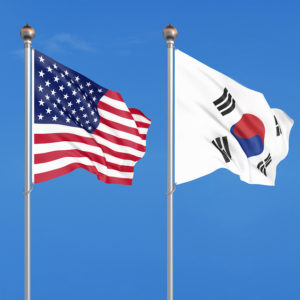The furor in Seoul surrounding the appointment of longtime leftist Cho Kuk as South Korea’s justice minister reminds one of the firestorms in Washington over President Trump’s choices for attorney general. He definitely wants a person whom he can rely to do his bidding, and he wants to be sure of the person’s ideological outlook.
Trump’s first attorney general, Jeff Sessions, a Republican senator who donned a hat bearing Trump’s campaign slogan “Make America Great Again,” would have appeared to have been the ideal choice. He supported Trump’s views on illegal immigration and was all in favor of tough measures against crime, illegal drugs and much else. So what could have gone wrong?
The answer was that Sessions had the sense to recuse himself from an investigation into Russia’s attempts at interference in the 2016 presidential election. He decided that he personally could not take charge of the investigation considering his close ties to the Republican Party, and the No. 2 person in the Justice Department, Deputy Attorney General Rod Rosenstein, appointed a man of undoubted integrity, Robert Mueller, former FBI director, to take charge of what turned into a protracted probe that ensnared some of Trump’s close allies and raised questions about his basic character.
During the course of the investigation Trump repeatedly denigrated Sessions, saying he regretted having appointed him. He would have liked to have gotten rid of him but refrained from doing so on the advice of leading members of his own Republican Party. Mueller, after the investigation was done, said that he did not have the evidence needed to indict Trump, who tried to say he was cleared, but the result was to weaken the strength of the Department of Justice.
Trump is much happier with Sessions’ successor, William Barr, a deeply conservative longtime figure in Washington who has supported the president on everything while blocking investigations that might undermine his power and prestige. Barr has long called for tougher penalties for those convicted of crimes and battled efforts that might lead to Trump’s impeachment by the Democratic-controlled House of Representatives.
The upper house, the Republican-controlled Senate, would need to approve Trump’s impeachment by the House. In Barr, Trump has just the man to protect his boss against efforts to force him out of office. Barr knows his way around the Department of Justice. He worked for years in the Justice Department, serving as attorney general when George H.W. Bush was president in the early 1990s.
It would probably not be fair to compare either Sessions or Barr with South Korea’s Cho Kuk. They have never been the target of investigations such as that against Cho, his wife and other relatives and confidantes. The cases, however, are comparable; they show the relationships between the person responsible for prosecuting crimes and the leader who appointed them.
In the case of Cho Kuk, he is committed to revising the Korean prosecutorial system for which ultimately the justice minister is responsible. No doubt he would love to begin by throwing out the prosecutor who has been going after him and his family. That will not be easy, however, any more than it was easy for Trump to dump Sessions and for other American presidents to fend off those pursuing them for their sins.
The most notorious instance of attorneys general differing with their president occurred in the early 1970s during the investigation of the Watergate scandal in which Republican Party operatives were being investigated for breaking into the Democratic National Committee headquarters in the Watergate complex in Washington. They were looking for material that might aid the Republic Party and Richard Nixon, but were caught by a watchman.
Nixon’s attorney general, Elliot Richardson, and Deputy Attorney General William Ruckelshaus defied Nixon’s order for them to dismiss the special investigator looking into all the crimes surrounding his presidency, notably the Watergate break-in.
“I’m not a crook,” was the most memorable line uttered by Nixon before the House would ever have the chance to vote on his impeachment. Seeing he might be charged as a criminal, he resigned and was then pardoned by successor Gerald Ford, named vice president after Nixon’s first vice president, Spiro Agnew, was ousted in another scandal.
The presidency of Bill Clinton was no less colorful. Again, an independent counsel, Kenneth Starr, was appointed. Starr targeted the White House intern, Monica Lewinsky, who had been providing oral sex for Clinton in the Oval Office. “I did not have sex with that woman,” Clinton declared. The House still impeached him, but the Senate acquitted him.
If these cases are quite different from that of Cho Kuk, they show the type of controversy that sometimes surrounds the person in charge of prosecuting crime. Every national leader wants a justice minister, or attorney general, who will support him through bitter controversy.
Cho, who once called for “revolution” against South Korea’s then-conservative regime, is definitely that kind of minister, but he may not last long as a prosecutor below him goes after him and his family. For comparison’s sake, he might want to remember how special prosecutors pursued Nixon and Clinton.

